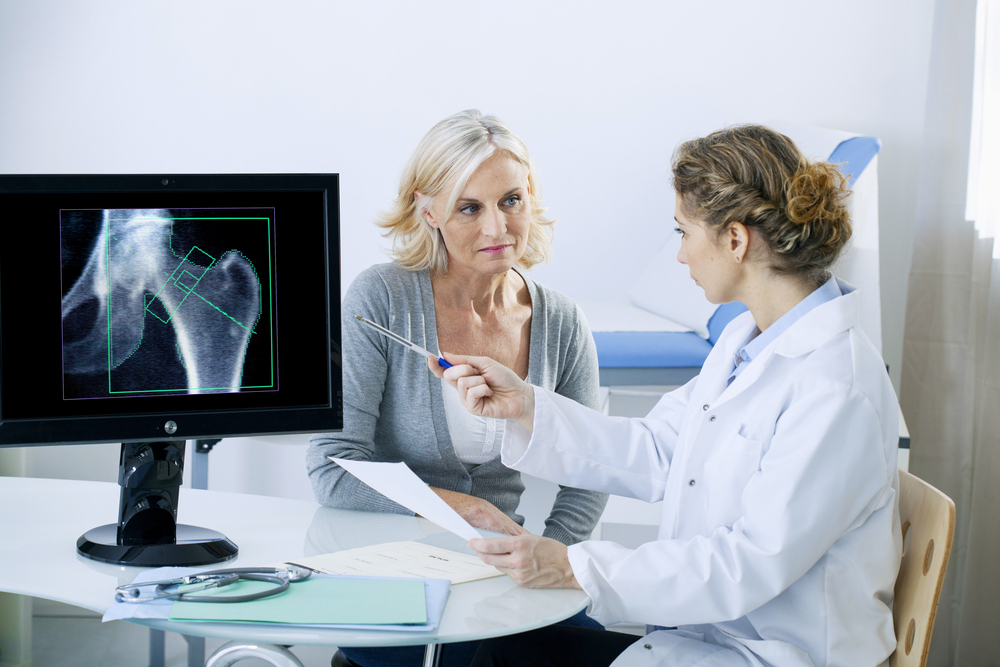
Can Menopause Cause Low Bone Density?
6 Ways to Keep Your Bones Healthy During Menopause
Menopause is the natural timeframe during which a woman’s period stops. It usually happens between the ages of 45-55. During menopause, estrogen levels drop, and bone loss accelerates. It’s estimated that women lose up to 10% of their bone mass in the first five years after menopause. But there are ways you can protect your bones and keep them healthy during menopause and after.
How Does Estrogen Affect Bone Health?
Estrogen is a hormone that plays a vital role in bone growth, maturation, and bone turnover. It prevents bones from becoming weak by slowing the natural breakdown of bone. Low estrogen levels can lead to weakened bones and osteoporosis. In fact, estrogen deficiency is one of the major causes of postmenopausal osteoporosis.
What is Osteoporosis?
Osteoporosis causes bones to weaken and become at higher risk for fracture. In osteoporosis, more bone is broken down than can be replaced, causing loss of bone structure. Some people are at higher risk for osteoporosis. These include:
- A family history of osteoporosis or broken bones
- History of a broken bone after age fifty
- Having had a hysterectomy with removal of the ovaries resulting in early menopause
- Poor dietary intake of calcium and Vitamin D
- Physical inactivity or long periods of bed rest
- Smoking cigarettes
- Excessive alcohol intake
- Some medications like proton-pump inhibitors, corticosteroids, and antiseizure medications
- Hormone imbalances, especially lack of estrogen
- A low body mass index, or being underweight
The good news is that you can protect your bones; let’s discuss six ways to improve your bone health.
1. Maintain adequate calcium intake
Calcium is needed to build strong, healthy bones. Try to get at least 1300mg of calcium intake each day. High-calcium foods include dairy products, calcium-fortified soy or almond drinks, firm tofu, almonds, brazil nuts, dark green leafy vegetables, sardines, and tinned salmon. Calcium supplements are also available.
2. Regular weight-bearing physical activity
Weight-bearing exercises are those that require your bones to bear your body weight. Things like walking, running, tennis, or dancing are considered weight-bearing activities. Resistance training or strength training in which weights or the body’s weight creates resistance to help build muscle mass and put resistance on the bones to strengthen them. Aim for some physical activity for around thirty to forty minutes daily.
3. Adequate Vitamin D levels
Vitamin D helps your body absorb calcium. Without the right amount of Vitamin D, your body can’t use the calcium you eat. Vitamin D is made in the skin after exposure to sunlight, and it’s in some foods. It’s not unusual to need Vitamin D supplements. You can check your Vitamin D level with a simple laboratory blood test.
4. Avoid smoking
Smoking is associated with increased levels of osteoporosis. Smoking affects the body’s ability to absorb calcium, and nicotine also decreases bone production. Also, smoking decreases estrogen levels which are critical to healthy bones.
5. Avoid excessive caffeine intake
Heavy caffeine intake slows bone production and decreases calcium absorption. Try to keep your daily intake less than two to three cups of coffee.
6. Consider hormone replacement therapy
Because estrogen is integral to bone health, it’s worth evaluating your hormone levels. We can check your estrogen level through laboratory testing and determine if supplementation would benefit the health of your bones. Estrogen can be supplemented in several ways, including topical creams and bioidentical pellets. Estrogen supplementation can also improve menopausal symptoms like insomnia, hot flashes, and vaginal dryness.
If you’ve been diagnosed with osteoporosis or are at high risk of developing it, your healthcare provider may recommend treatment with a medication to support your bones. Two commonly prescribed medicines fall into the categories of bisphosphonates and SERMs.
Bisphosphonates
Bisphosphonates are medicines that prevent bone loss by decreasing how quickly your body breaks down old bone cells and how quickly it builds new ones. These medicines can be taken orally and given daily, weekly, or just once a month. An intravenous infusion is also an option.
SERMs
SERMs, or selective estrogen receptor modulators, are a class of medication that blocks the way estrogen works in some places and improve its function in others. SERMs help increase the density of bones, especially in the areas of the hip and the spine.
If you are concerned about your bone health and how you can improve or preserve it, our specialists are ready to help create a customized plan of care for you. Give us a call today at Vitality Aesthetic and Regenerative Medicine.

